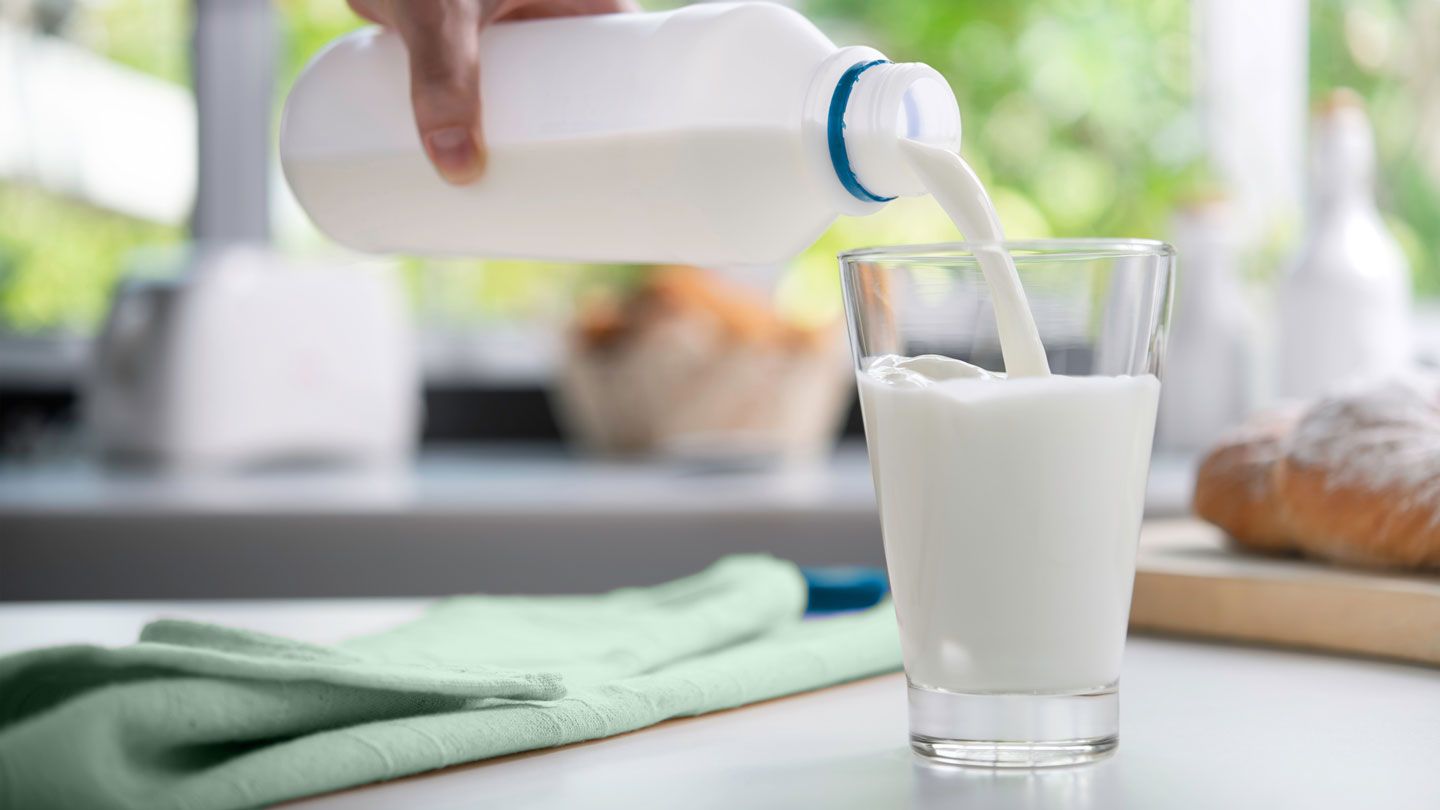“These results are compelling enough to encourage people to increase calcium intake in their diets, which would probably have other major benefits to bone health,” says Suneel Kamath, MD, a gastrointestinal oncologist at Cleveland Clinic in Ohio, who was not involved with the study.
Colorectal Cancer Is on the Rise in Younger Adults
Calcium Decreases Colorectal Cancer Risk, Alcohol Raises It
The women completed a comprehensive survey about the foods and drinks they consumed, and a small subset of women filled out a 24-hour diet assessment. Participants were followed for an average of 16.6 years, and during that time more than 12,000 women were diagnosed with colorectal cancer.
Key findings included:
- Foods and drinks rich in calcium, such as milk and yogurt, were associated with a lower risk of colorectal cancer.
- Both dairy and nondairy calcium sources (like dark green leafy vegetables) had a similar effect on risk. That suggests that calcium may be the main factor responsible for reducing risk of cancer.
- There was a clear link between alcohol consumption and increased risk of colorectal cancer. About 20 g of alcohol (equivalent to a glass and a half of wine) per day was associated with a 15 percent increased risk.
- Red and processed meat were associated with an increased risk of colorectal cancer. Eating 30 g more per day (about 1 ounce) above average intake was linked to an 8 percent higher risk.
- Intake of the nutrients riboflavin, magnesium, phosphorus, and potassium were also associated with a reduced risk, as was consuming breakfast cereal, fruit, whole grains, carbohydrates, fiber, total sugars, folate, and vitamin C.
“It’s suggested that calcium might protect against bowel cancer by binding to bile acids and free fatty acids to form a type of a harmless ’soap,’ which stops them from damaging the lining of our gut. This ’soap’ effect helps these bile and fatty acids to be swept out of the gut like a ’spring clean’ so they can’t build up and so are less likely to cause damage,” she said.
Findings Would Likely Apply to Men
“This is a very interesting study because the number of women included is so large. The finding that calcium can reduce risk of colorectal cancer is very interesting, and I was surprised by how strong the protective effect was,” says Dr. Kamath.
It’s likely that these findings would also apply to men, because the risk factors for developing colorectal cancer are not expected to vary based on gender, he adds.
“The study also confirms that alcohol, red meat, and processed meats are carcinogenic for colorectal cancer, which have been seen in other studies,” says Kamath. “Hopefully, this additional information will help more people cut back and quit drinking alcohol.”
The findings also confirm that diets high in fruits, whole grains, fiber, and vitamins (likely a surrogate marker for a diet rich in vegetables) can reduce colorectal cancer risk, he says.
Do Calcium Supplements or Calcium Fortified Foods Have the Same Benefits?
The study found that most of the women were consuming above the recommended level of calcium (roughy 700 mg more). For some, this might be from having added calcium supplementation in their food, according to the authors.
But more research is needed to determine whether calcium supplements and calcium-fortified foods have the same effect on reducing colorectal cancer risk, the authors said.
“I would not recommend calcium supplements based on this study, as it only looked at dietary calcium intake, not supplements,” says Kamath. “Additionally, we know that excess calcium intake can increase risk of cardiovascular disease and heart attacks. It is difficult to consume excess calcium in the diet, but if you’re taking supplements, it’s very easy to overdo it.”
Sugar Not Associated With an Increased Risk of Colon Cancer
The study also dispels the myth that sugar feeds or causes cancer, says Kamath.
“Interestingly, people with diets higher in total sugars had lower colorectal cancer risk. Now I wouldn’t recommend adding sugar to your diet, but these data do clearly indicate that sugar does not cause cancer — and it’s likely that sugar intake has nothing to do with cancer risk for most cancers,” he says.
How to Lower Your Risk for Colorectal Cancer
“Maintaining a healthy weight and stopping smoking are the best ways to lower your risk of bowel cancer. The findings from our study suggest that alongside cutting down on alcohol and red and processed meat intake, calcium could also play a key part in lowering the risk of bowel cancer,” says Dr. Papier.
People should know that the best diet for lowering colorectal cancer risk is a heart-healthy one like the Mediterranean diet — meaning one high in vegetables, whole grains, lean meats like poultry, fish, beans, and fiber, and low in red meat and processed foods, says Kamath.
“The reality is, we figured out the best diet for ourselves hundreds of years ago, and it isn’t going to change. The trick lies in finding a way to be consistent about following a heart-healthy diet. People keep chasing after the next superfood or supplement, but they should really be working on ways to stick to a healthy diet consistently for many years, not just weeks or months,” he says.
Read the full article here




